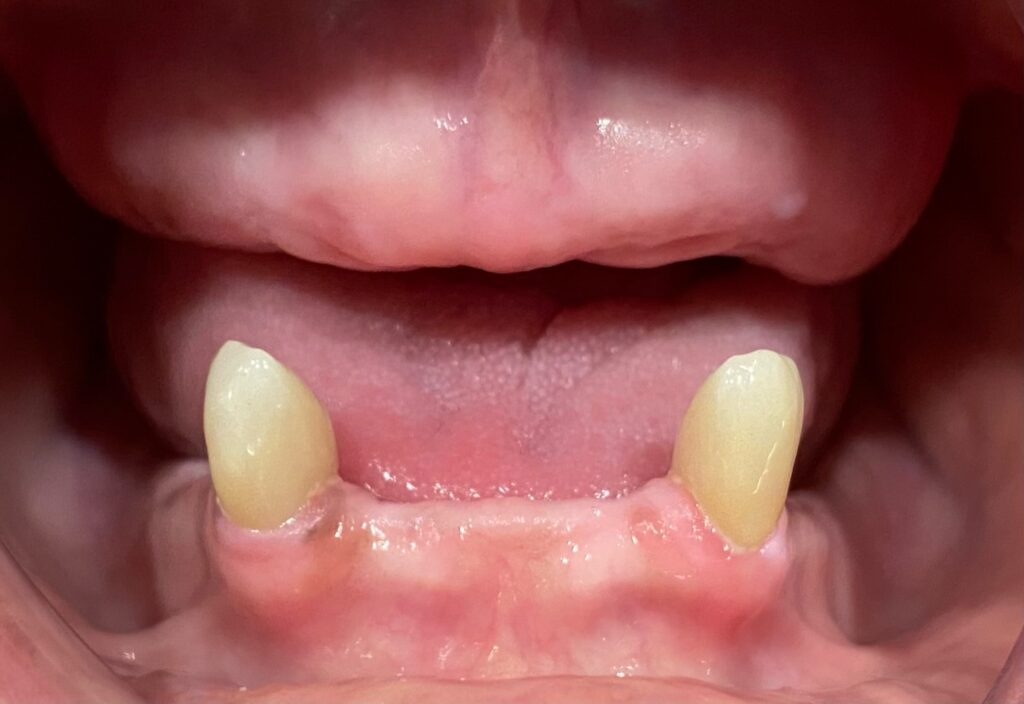Dentures are a standard procedure for replacing missing teeth and restoring function to the mouth. And contrary to popular belief, dentures aren’t only for seniors! Anyone looking to replace missing teeth can benefit from dentures.
In the U.S., nearly 90% of edentulous people (those who are missing all or most of their teeth) wear dentures. That number includes anyone from children to senior adults who’re looking to improve their oral health. The denture market continues to grow, with 15% of those missing one or more teeth getting new dentures made each year.
If you’re considering getting dentures, understanding the procedure for dentures and what to expect with dentures can give you peace of mind as you navigate through the process. Let’s look at what to expect when getting dentures, from who’s eligible to the benefits associated with the process of getting dentures.
What Are Dentures?
Before we look at how to go about getting dentures, let’s answer a common question that dentists receive: What are dentures?
Dentures are removable replacements for missing teeth and surrounding tissues. There are two types of removable dentures available: complete and partial. Complete dentures are used when all the teeth in either the upper or lower jaw need replacing. Partial dentures are an option when some teeth remain and require little supplemental support.
What Are the Benefits of Dentures?
Dentures can benefit those looking to restore function to their mouths. Here are just a few of the potential benefits that come with getting dentures:
- Improved Oral Health: Dentures can prevent further damage and disease by filling gaps created by missing teeth that would otherwise allow food, debris, and bacteria to accumulate.
- Improved Appearance: Replacing missing teeth with dentures can improve the overall appearance of your smile, giving you a boost in confidence and self-esteem.
- Restored Function: Replacing missing teeth with dentures can improve your ability to speak, chew, and smile without worrying about uncomfortable or embarrassing gaps.
The achieved benefits will be dependent on each person’s unique case.
Who Is a Good Candidate for the Dentures Process?
While the procedure for dentures is similar for most patients, it’s essential to know who may or may not be eligible. Generally, the best candidates are those who have lost most or all of their teeth but otherwise have good oral health without any underlying conditions that may affect the stability of the dentures.

Additionally, a patient should have healthy oral tissue to support the dentures, including a strong jawbone and enough gum tissue to properly hold the dentures in place. Patients with poor oral health or other conditions may need to pursue alternative treatment options before considering dentures. Your dentist can help determine if dentures are the right solution.
What Is the Process for Getting Dentures?
The process of getting dentures entails having an initial consultation, capturing impressions of your teeth and gums, selecting the appropriate device, and receiving a proper fitting within the mouth. Each stage of getting dentures is performed meticulously for customization purposes.
Let’s take a closer look at each of the stages of getting dentures:
1. Consultation
If you’re interested in learning how to get new dentures, the first step involves a consultation with your dentist. A dentist can help evaluate your oral health and discuss with you the best procedure for obtaining dentures.
They’ll also help you learn which option — complete or partial dentures — fits you best. If you have any questions or concerns about what to expect with dentures, they can provide you with the appropriate answers.
2. Impressions
The next step in the getting dentures process involves taking impressions of your teeth and gums. Your preliminary impressions take about 30 minutes. Two weeks later, your final impressions are taken, which take an hour. This step ensures that your denture fits your mouth comfortably.`
3. Jaw Relation Records
Two weeks after your final impressions, you’ll return to the office for jaw relation records. During this hour-long appointment, your dentist notes your upper jaw’s position relative to your lower jaw. If the jaw relations are incorrect, your dentures will move out of alignment.
3. Try-in Appointment
Once the dentures are made, you’ll schedule a “try-in” or fitting appointment with your dentist, giving you a chance to preview your new smile. During this appointment, you and the dentist will make sure the dentures fit properly in your mouth.
4. Delivery
Two weeks after your try-in appointment, your dentist will finally deliver your dentures to you. Your dentist will also provide instructions on caring for your new dentures and what to expect when wearing them.
5. Follow-up
The day after you receive your dentures, you’ll come back to the office for a follow-up visit to ensure they fit. Your dentist will make any necessary adjustments, so the dentures fit comfortably and securely in your mouth.
Tips for Caring for Your New Dentures
Once you’ve received your dentures, it’s important to take care of them. When you care for your dentures according to your dentist’s instructions, they’ll last longer and stay comfortable in your mouth. Here are some tips for taking care of your new dentures:
1. Daily Cleaning
Dentures need regular cleaning. This helps remove any plaque and bacteria that can build up over time. Be sure to use a special denture cleanser. Avoid food and drinks that can stain, and be sure to rinse them thoroughly after eating.
2. Overnight Soaking
When you’re not wearing them, soak them overnight in a solution specifically made for denture care. This helps keep the dentures moist and prevents them from drying out or getting damaged.
3. Proper Storage
When you’re not wearing your dentures, store them in a safe and sanitary place. This can protect them from damage and preserve their condition. Keep your denture storage compartment clean as well to prevent bacteria from building up.
4. Regular Dental Visits
Even though you now have dentures, it’s still important to visit your dentist on a regular basis. This will ensure that your dentures continue to fit well and that you get the care you need for optimal oral health.
Although they last several years with proper care, you’ll eventually need to have them refitted or replaced. However, appropriately caring for them can help prolong the effectiveness of your dentures.
Learn What to Expect With Dentures at Northside Dental Co.
At Northside Dental Co., we strive to make our patients feel comfortable and informed about the process of getting dentures. Dentures offer many benefits, including improved appearance and function, increased confidence, and better oral health.
Our team of experienced dentists will work with you every step of the way to ensure your dentures look and feel natural. At Northside Dental Co., we’re committed to providing high-quality dental care to all our patients. Book a dental appointment today if you’re interested in learning more about the process of getting dentures.

